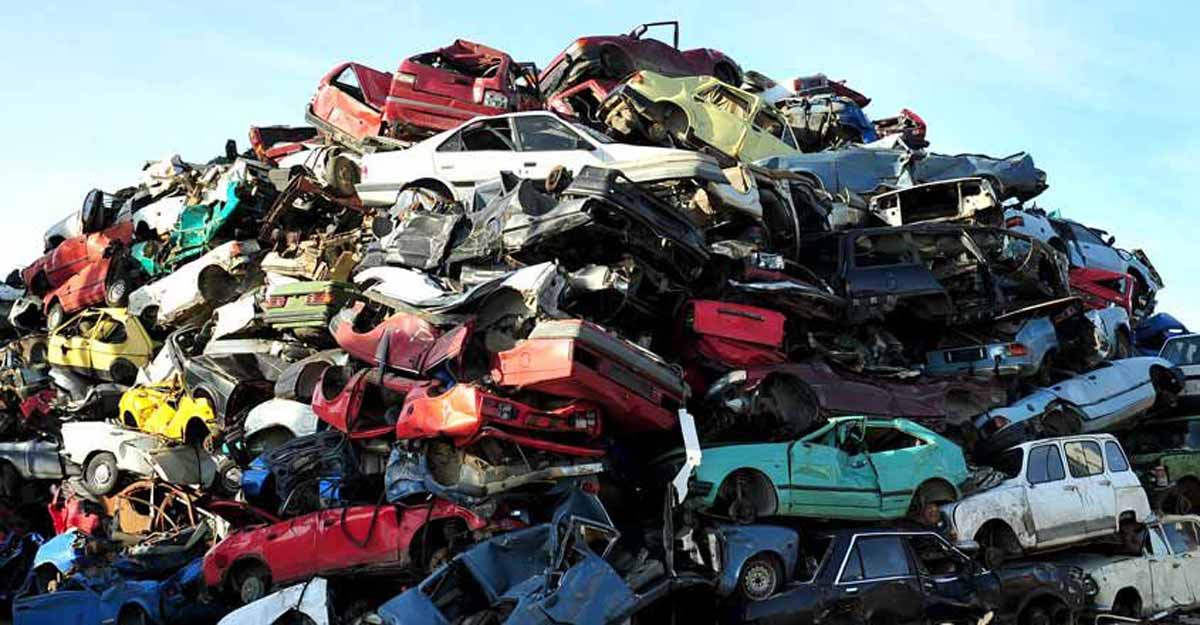The government’s new Vehicle Scrappage Policy details how old vehicles should be destroyed or discarded. Older government, commercial, and private cars will scrap or destroy.

The policy specifies that government commercial vehicles would scrap after 15 years and private vehicles after 20 years.
According to the government proposal, all vehicles owned by the Union and state governments would deregister and scrap after 15 years. The scheduled deadline for scrapping government and PSU cars over 15 years was April 1, 2022.
Testing old cars under the scrappage policy
The Automated Fitness Center will examine old vehicles for fitness according to international standards. The cars that fail the fitness test will scrap.
The Fitness Test and Scrapping Center rules go into effect October 1, 2021, with scrapping 15-year-old government and PSU vehicles from April 1, 2022, and heavy vehicles scrapped from April 1, 2023.
Commercial vehicles will have to pass a fitness test, and all other vehicle types will have to pass a fitness test in phases beginning June 1, 2024.
Why is the scrappage policy important?
The new scrappage policy is vital since older cars pollute more than newer vehicles and pose a greater risk to road safety. Around 51 lakh light vehicles and 34 lakh heavy vehicles are over 20 years old in India. Approximately 17 lakhs 15-year-old medium and heavy commercial vehicles don’t have a “Fitness Certificate.”
How does this policy benefit car owners?
The ‘Scrapping Certificate’ allows the holder to get a 5% discount on new car buys, as well as a waiver on registration costs. Owners of scrapped vehicles will receive a 4 to 6% discount on the buying price of a new car. The state governments should also offer a 25% personal and 15% commercial road tax rebate.
Another benefit of this policy is that scrap metal prices will decrease, lowering vehicle production costs. It also employs around three crores 70 lakh people in the automobile industry.
It will employ Thirty-five thousand people and invest Rs 10,000 crores in the new fitness centers. This policy will generate between Rs 30,000 and 40,000 crores for the government treasury.
According to these rules, scrapping centers can only be set up in industrial areas, not in residential areas. The scrapping center owner will also require paying an earnest money deposit (EMD) of Rs 10 lakh and Rs 1 crore to the state governments.
How to scrap an old car?
- According to government guidelines, the owner should remove an old vehicle’s chassis number before recycling.
- The owner should contact an authorized scrap dealer.
- The dealer must provide safe and environmentally friendly car disposal.
- The owner should also inform the local RTO that scrapped his car.
- He may also deregister his car.
- The scrap dealer must inspect the car and estimate a price depending on its weight and other details.
- May recycle A car’s parts if the owner agrees to pay the dealer’s price.
- A CNG-equipped vehicle’s owner might demand a different price. The car owner may also negotiate for items like batteries and tires depending on the condition of these parts.
- The scrap dealer may not scrap the vehicle and may use it for illegal purposes. It might cause issues. The owner should check that they scrapped the car.
- Sending the original RC to the scrap dealer is mandatory. Can provide RC photocopy.
- The owner should take images of the scrapped car for the RTO procedure.
- No value for metal if the car isn’t in working condition.
- If it is in excellent condition, the scrap dealer may sell it at a good price. Should scrap the car’s metal body.
